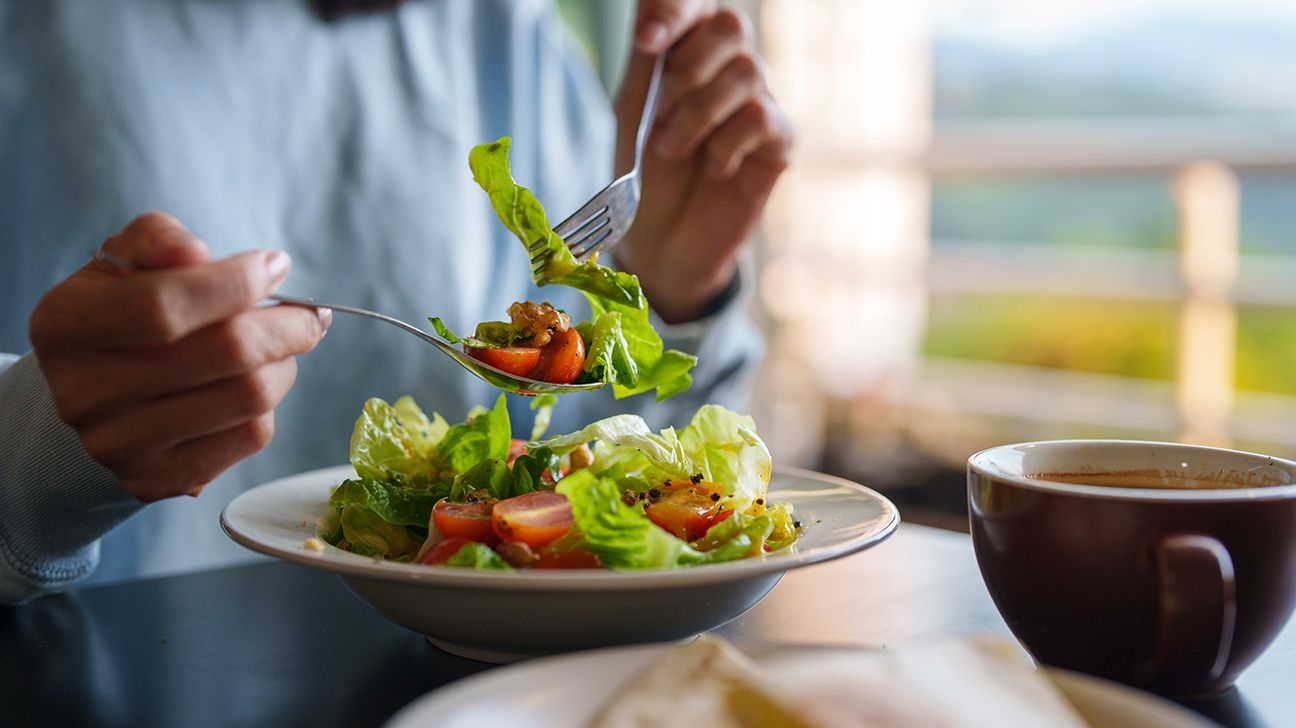Eating style changes may be necessary with early kidney disease. This may include choosing more fresh food, eating less salt and sodium, and having smaller portions of protein like fish, eggs, and chicken.

Since the kidneys process your body’s waste, early stage kidney disease can mean the kidneys aren’t able to process foods and drinks the same way.
This can mean changing eating habits, ranging from less sodium to the right protein amounts. It may also involve limiting other vitamins, nutrients, and minerals that are typically considered healthy choices. Some people may also find plant-based foods beneficial for their kidney health.
Research shows that nutritional changes are a key part of managing early stage chronic kidney disease (CKD) and preventing it from getting worse.
Here are some key steps you can discuss with your healthcare team to focus your food choices and meal plans if you’ve received a diagnosis of kidney disease.
The Centers for Disease Control and Prevention (CDC)
At first, limiting your salt intake might be difficult and affect your food taste.
But the CDC points out that within a week or two, you’ll get used to less salt in food. You can also add flavor with different herbs, spices, mustard, or tasteful vinegar.
Focus on fresh, homemade food to better manage the amount of sodium in your food. Eat only small amounts of restaurant food and packaged food, which usually have lots of sodium. Look for low sodium (5% or less) on food labels.
You need a certain amount of protein for growth and to maintain and repair different parts of your body. But too much protein can lead to kidney damage.
If the kidneys aren’t working as well as they should, the waste from protein can build up in your bloodstream and hurt your kidneys, causing fatigue and appetite loss.
The National Kidney Foundation recommends a low protein diet to help reduce the workload on your kidneys.
This may include:
- having more fruits and vegetables, which may lower the acid in your body to help your kidney health
- cutting back on red meat, fish, eggs, and poultry, which all can increase the acid in your body and lead to metabolic acidosis
- limiting dairy products, which are high in phosphorus and can be bad for your kidneys
Research from 2024 suggests that a plant-based eating style benefits people with CKD of any stage. Eating plant-based foods may also help slow the progression of kidney disease for those who’ve already started experiencing symptoms.
The 2024 research focused on different styles of plant-based eating, including those considered healthy with whole fruits and vegetables. It also looked at unhealthy plant-based eating, which included refined grains, potatoes, and processed fruit juices.
Two key findings from the study were as follows:
- People who followed the healthier plant-based diets had a lower risk of dying from kidney disease.
- The more someone consumed unhealthy plant-based foods and drinks, the higher their risk of CKD progression and eventual death.
- The findings weren’t clear about whether healthy plant-based eating slows CKD progression once kidney disease has become obvious. But they do suggest that unhealthy plant-based eating may negatively affect kidney health.
People with early stage CKD may also need to keep in mind the nutrients they consume.
Phosphorus
You may also need to
This mineral benefits bones and other parts of the body. But kidney damage means your kidneys can’t remove excess phosphorus that builds up in your bloodstream. This can weaken your bones and damage your blood vessels, eyes, and heart.
You may need to limit beans, dairy, meat, nuts, and whole grains. You may also need to monitor packaged foods that may contain phosphorus.
Potassium
Another mineral you may
Certain foods to consider limiting include oranges, potatoes, tomatoes, and whole grain bread.
Instead, you might increase the amount of apples, carrots, and white bread that have lower potassium.
Your healthcare team may also advise prescription medications to help lower your potassium levels.
Calcium, magnesium, vitamin D
People with kidney disease may also have lower levels of calcium, or serum calcium. This mineral comes from many places, including magnesium and vitamin D.
The National Kidney Foundation cites research findings that note people with lower serum calcium levels tend to experience worsening kidney disease and kidney failure faster than those with higher calcium levels.
Some foods you may consider include fish and mushrooms. But it’s important to note that some options high in vitamin D may also have phosphorus — which isn’t recommended for those with kidney disease.
Your nutritionist and healthcare team can best advise you on foods that fit your needs regarding early stage kidney disease.
Food ideas for people with kidney diseaseTry these 20 food choices that may help those with kidney disease.
Nutrition is an important part of managing early or any stage of kidney disease.
You can work with your healthcare team to find food options that help limit sodium and salt, reduce protein, and reduce the phosphorus and potassium you consume.






